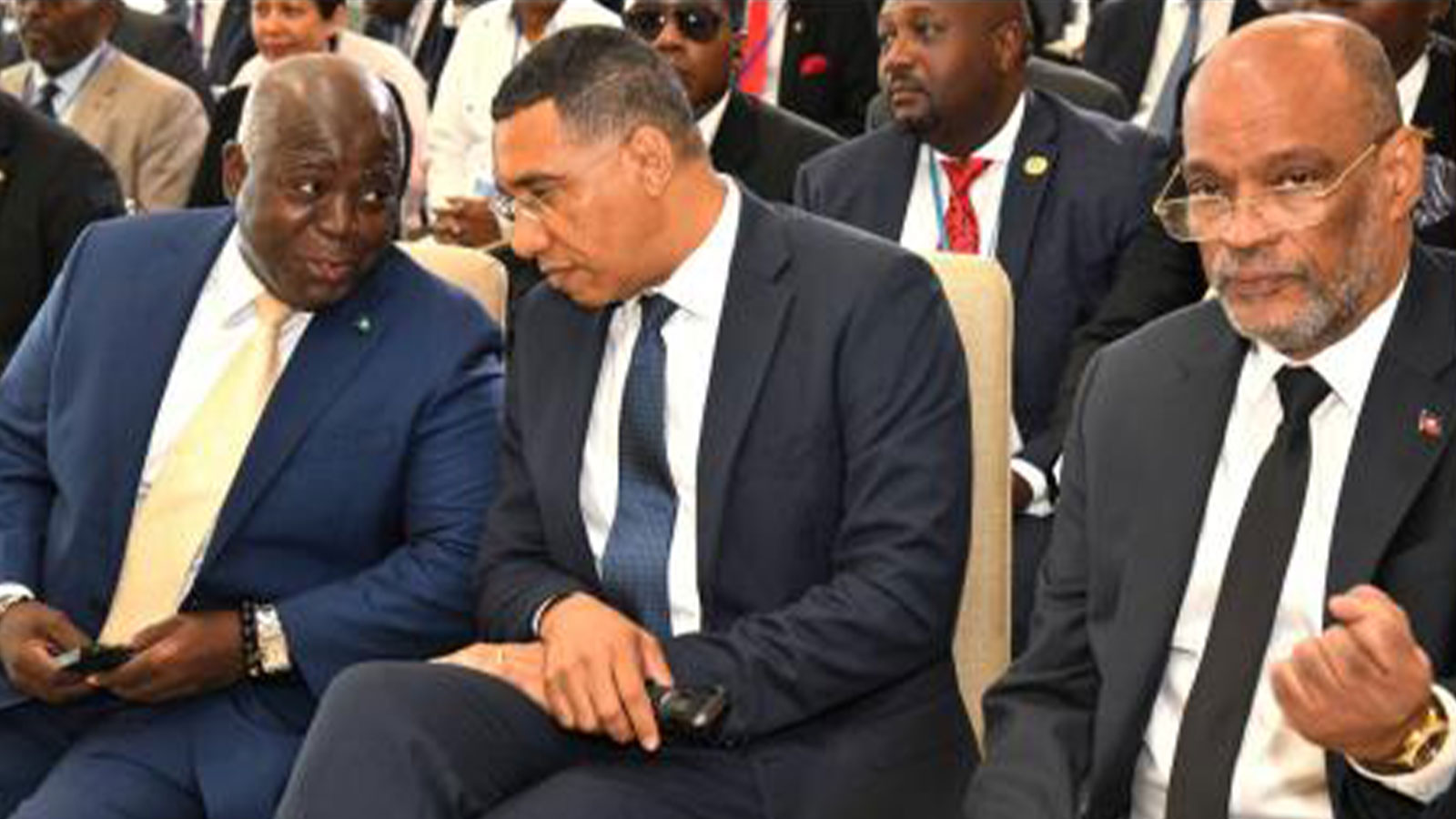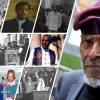Regional leaders express hope for consensus as troubled nation’s stakeholders begin security talks in Kingston
By Ainsworth Morris, Jamaica Gleaner —
As regional leaders and former leaders came together in Kingston yesterday for the opening ceremony of the Meeting of Haitian Stakeholders, who will use Jamaica as base for discussions on the way forward for the beleaguered CARICOM nation, it was Bahamas Prime Minister Philip Davis who spoke at length about the hopes and aspirations for the violence-torn republic.
Davis, who also serves as the current chairman of CARICOM, said a successful resolution to Haiti’s issues would amount to success for all member states of CARICOM.
“The responsibility falls to all of us, to all of you to make a supreme effort to find an effective solution. The challenges and struggles taking place in the Republic of Haiti have been present for far too long,” Davis said.
“If there existed a perfect solution, we probably would have found one by now, and so I think it is important that we recognise that [what] we are striving for may, in the end, not be perfect, but will likely be something that in the immediate time, is effective; something that saves lives; something that brings an end to killings; something that brings an end to the rapes; something that brings an end to the kidnapping and violence; something that brings an end to the loathing and the robberies and the gang warfare,” added the Bahamas head of government, who said he was raised on Christian faith and spoke from those principles.
“This is why we have come. We have come to help and not because the task is easy. We have come here precisely because the task is extremely difficult … . My friends, we’re here to help. Ultimately, there must be a Haitian solution led by the Haitian people. We’ve heard the many cries for help, but we cannot, in good conscience, stand by and watch the continued suffering of the Haitian people.”
Davis’ comments were preceded by those of Andrew Holness, prime minister of Jamaica, the host nation for the Haiti talks, who noted that his country supported the process of inclusive and open dialogue and efforts to find solutions and approaches to Haiti’s ongoing challenges.
“It is encouraging to see represented here today stakeholders from a broad spectrum of sectors of Haitian society, and I am pleased to note that some of you were part of our earlier engagement in Port-au-Prince [the capital of Haiti],” Holness said.
“This is a visible demonstration of your individual and collective will to bring positive change to the difficult situation in your beloved country.”
Powerful gangs
That difficult situation, in recent years, has been reflected in the powerful gangs that have been infiltrating once-peaceful communities in the Haitian capital and beyond, with experts estimating that they control about 60 per cent of the capital.
They have pillaged neighbourhoods, raped adults and children, and kidnapped hundreds of victims, ranging from US missionaries to a hot dog street vendor in a bid to control more territory, with violence worsening since the July 2021 assassination of President Jovenel Moïse.
Haiti has failed to hold elections since Moïse’s murder and Prime Minister Ariel Henry assumed power shortly after, promising that his administration would do so.
In early January, the terms of the remaining 10 senators expired, leaving no elected officials in place.
“The discussions scheduled to take place over these three days, in fact, come as a direct result of our CARICOM Special Mission to Haiti on 27th February of this year – a mission I was honoured to lead,” said Holness.
“Jamaica is honoured to have been entrusted by CARICOM, and by you, to host these talks at a time when dialogue at every possible level is necessary and critical. During our sessions in Haiti, there was clear consensus that security was an immediate and critical concern. Some had also expressed that while security is of paramount concern, more inclusive and broader dialogue was needed. It was also made clear on various levels that many Haitian stakeholders would wish to have the opportunity to widen the political consensus towards the holding of national elections under the appropriate conditions.”
For his part, Henry added more to the calls of Holness and Davis for support from civil societies and other groups.
He said he was happy that members of CARICOM had convinced other stakeholders to meet in Jamaica and have the discussions.
“It is up to us, the people of Haiti, to together amongst ourselves, through our own efforts, to find a common national project which will bring us together and to have a rebirth of our nation,” he said through an interpreter.
“We did not come here to negotiate for another agreement. We are here to be together and talk about national interest as the next steps that we have to take to rebuild our democracy … so many people of our population have been adversely affected. We do not have any more time to waste.
“We need a national effort to take our country out of this infernal spiral. We have to start once again to become a normal country. You do not know how difficult and distressing it is for us as nation leaders to go into international meetings of CARICOM and to see once again people talking about the crisis and the difficulties besetting our country instead of looking at economic situations, our potential for tourism, attracting investments and helping the young people who are forced to leave our country.”
CARICOM Secretary General Carla Barnett said the meeting would enable the dialogue necessary to develop a road map towards a Haitian-led solution to the protracted political impasse.
“Let it be very clear, Haiti is important to CARICOM. Haiti is our single largest member state. Haiti is the first free black republic in the world. The first independent state in the Caribbean and the second independent state in the Western Hemisphere,” she said. “CARICOM is approaching this initiative with full acknowledgment of the spirit of freedom and independence that the people hold so dear. We are, therefore, pleased to know that the group of stakeholders who accepted the invitation to attend this important conversation, we are pleased with your presence.”
Source: Jamaica Gleaner
Featured image: Prime Minister Andrew Holness (centre) speaks with Bahamas Prime Minister Philip Davis (left) while Haiti Prime Minister Ariel Henry looks on during the opening ceremony of the Haiti Security Talks at the Ministry of Foreign Affairs and Foreign Trade in Kingston.















